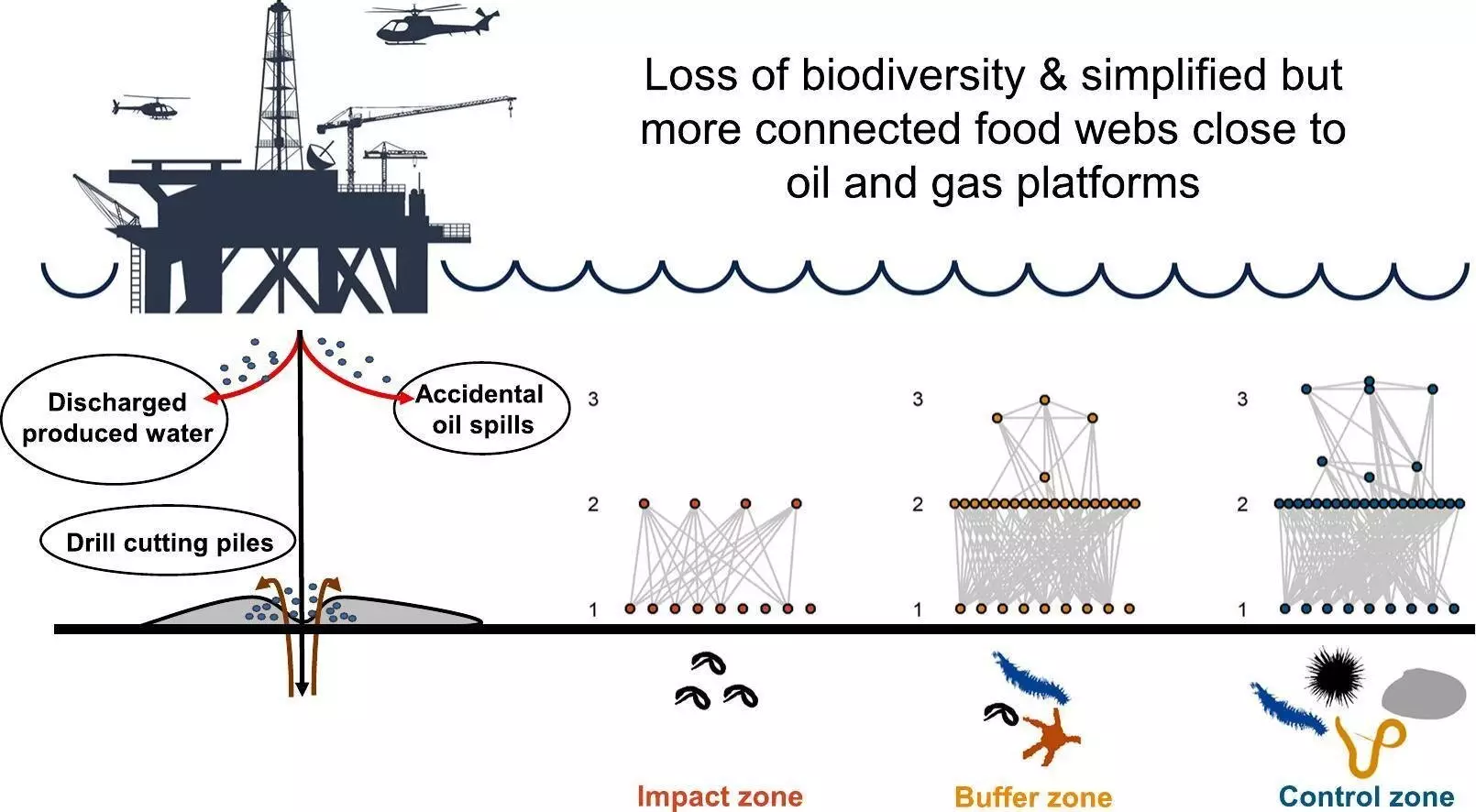As the quest for fossil fuels continues unabated across the globe, a powerful new study sheds light on the staggering ecological consequences of oil and gas extraction in the North Sea. Conducted by experts from the University of Essex, the Natural History Museum, and the Center for Environment, Fisheries and Aquaculture Science (CEFAS), the research highlights a shocking surge in pollution and a profound decline in marine biodiversity within a mere half-kilometer radius of offshore drilling sites. The findings, published in *Science of The Total Environment*, expose a troubling reality for those who champion the ongoing pursuit of hydrocarbon resources.
According to this comprehensive study, levels of pollutants such as hydrocarbons were found to be astoundingly elevated, reaching a staggering 10,613% higher near oil and gas platforms compared to pristine areas. Furthermore, heavy metals, including lead, copper, and nickel, surged by 455%. This toxic cocktail has been accumulating over decades, wreaking havoc on fragile marine ecosystems that depend on a rich and diverse tapestry of life.
The Consequence of Simplified Ecosystems
Researchers analyzed an extensive dataset of over 4,200 marine species collected between 1981 and 2012, revealing a disturbing trend: the number of species inhabiting areas near these platforms plummeted by nearly 30%. This decline represents more than just a statistic; it illustrates a fundamental shift in marine ecosystems that could have repercussions for years to come. The simplification of food webs around drilling sites means that not only are we losing species, but we are also transforming the very structure of oceanic life.
One of the most striking revelations from this research is the stark difference in community dynamics observed near these platforms. Larger predators like starfish and other essential species disappeared, leaving smaller and hardier organisms, such as worms, to thrive in the contaminated sediments. The resulting food web became more linear and less complex, indicating a stressed ecosystem that can no longer support its traditional diversity.
A Call for Scientific Responsibility in Decommissioning
This unprecedented study raises serious questions about the sustainability of oil and gas extraction practices and their long-term effects on marine life. As many of the platforms are approaching the end of their operational life, the need for responsible decommissioning becomes ever more crucial. Dr. Natalie Hicks from the University of Essex highlighted the urgency of collaborating with industry and government to ensure that decommissioning practices are scientifically informed and safe for the environment.
Dr. Eoin O’Gorman poignantly stated that simpler food webs are indicative of ecosystems under environmental stress, pointing towards a troubling future for marine biodiversity. His concerns are echoed by Dr. Gareth Thomas from the Natural History Museum, who emphasized the need for action as oil and gas operations continue to unravel complex ecosystems, favoring a few hardy species at the expense of more sensitive marine life.
The Broader Implications of Biodiversity Loss
The implications of these findings extend beyond mere numbers; they touch upon the fundamental framework of our oceans. Biodiversity is not just a luxury; it is a vital component in maintaining healthy ecosystems, which are essential for carbon sequestration, nutrient cycling, and the overall health of our planet. The ongoing deterioration of these ecosystems jeopardizes not only marine life but also the livelihoods of countless communities dependent on biodiversity for food, tourism, and recreation.
The fish species that thrive on a diverse and rich ecosystem are facing the prospect of diminished populations, leading to potential collapses in local fisheries. This economic impact, compounded by the threats to biodiversity, underscores the need for immediate policy interventions aimed at safeguarding our oceans.
A Shift in the Fossil Fuel Paradigm?
As climate change continues to exert its pressure on global ecosystems, the findings of this study invite a critical reassessment of our reliance on fossil fuels. With the ever-growing awareness of the urgent need for a transition to renewable energy, we must also recognize the inherent risks associated with the continued extraction of hydrocarbons. The health of our oceans is a pressing issue that cannot be sidelined amidst the broader discourse on energy.
While the study illuminates the detrimental effects of North Sea oil and gas extraction, it also serves as a clarion call for renewed understanding and action. We are at a pivotal moment where scientific research must inform policy decisions, driving a transformative shift in how we engage with our natural resources. The call for collaboration among scientists, industry stakeholders, and governments is not merely a suggestion but an imperative for the future of our oceans and the diverse life they harbor.

